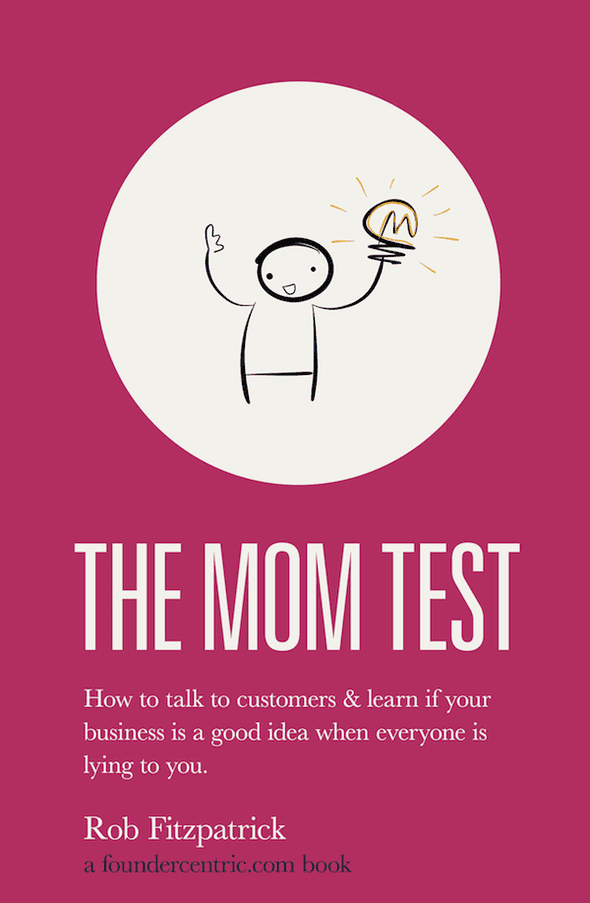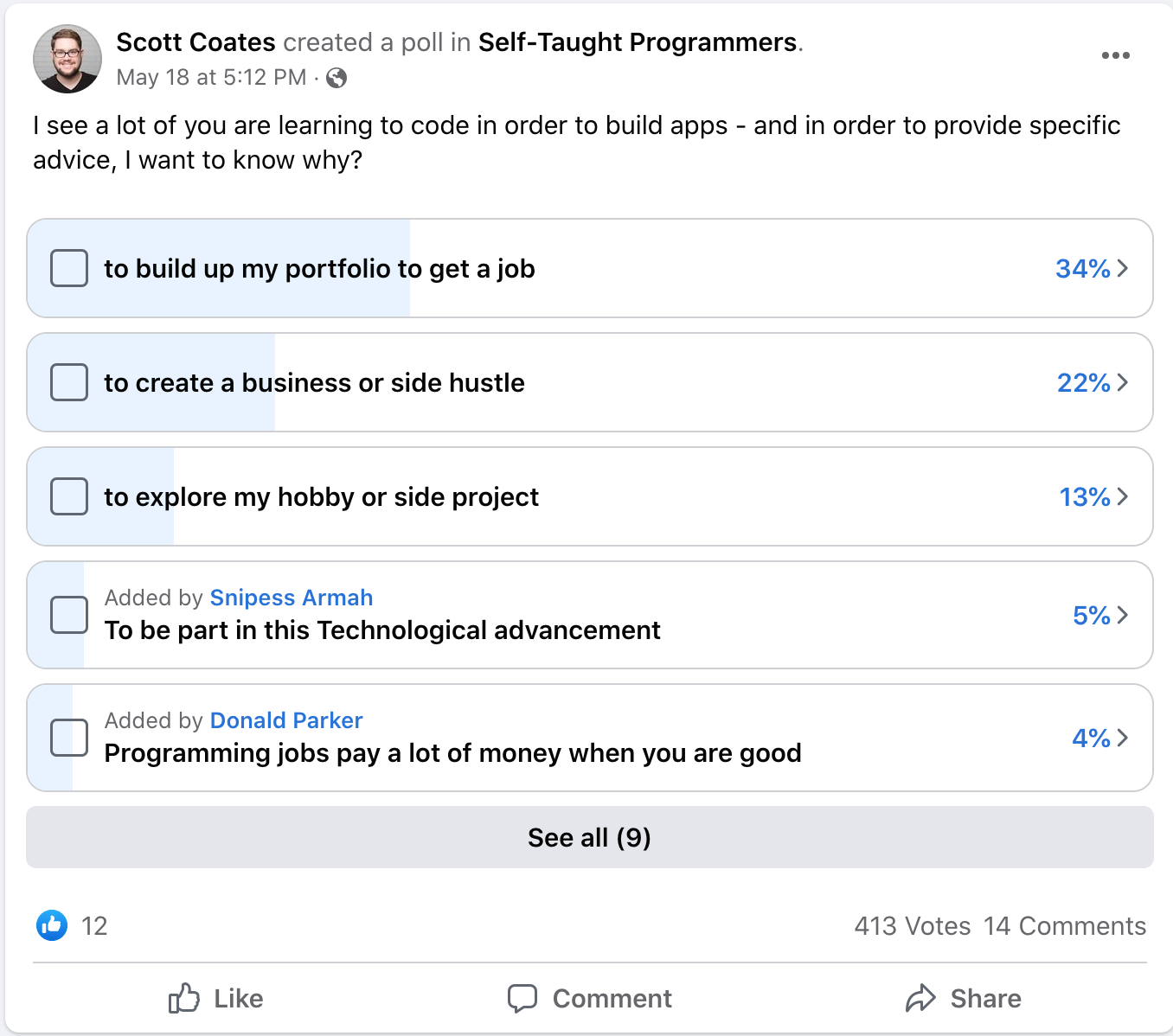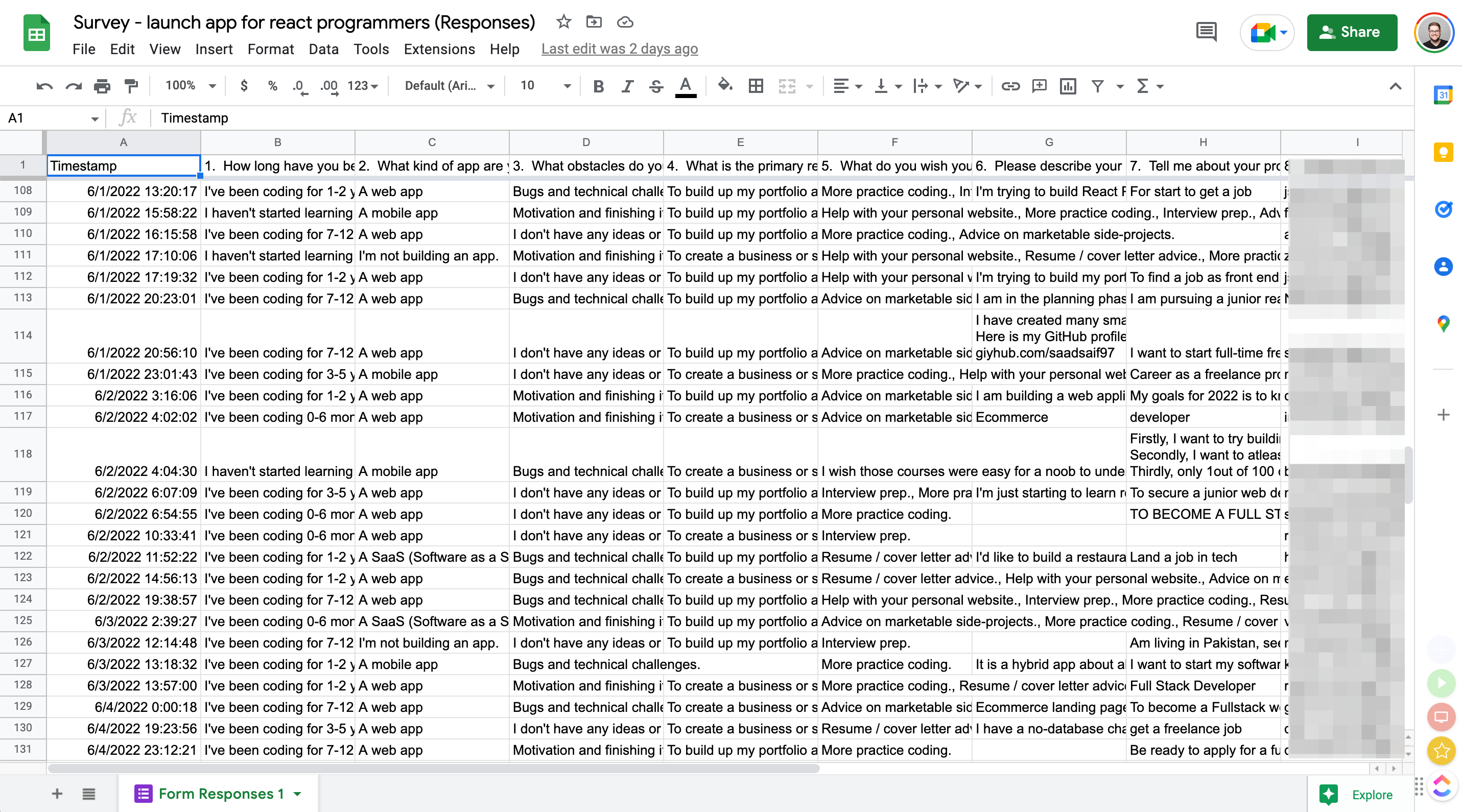Blog
12 Products in 12 Months (Early June Update)
6/13/2022

On the day of my parents’ moving party, I committed to building 12 products in 12 months.
They just sold my childhood home (without even asking if I wanted it. kidding, of course… 😭), and almost the entire extended family was there to help unload the uhaul to the new house.
I’d heard about 12 x 12 on IndieHackers, a podcast for tech entrepreneurs. 12 x 12 is relatively new, and some pioneers behind the challenge were being interviewed. Basically, for a whole year, you try to build 1 product a month until something takes off.
After unloading the millionth box from the moving truck, I told my cousin my plan to try the 12 x 12 challenge starting June 2022. I didn't want to tell anyone else and get myself psyched out.
I needed a shake up. I knew throwing myself into something I had always wanted to (but was maybe too afraid to) was probably a good call.
One person with a lot of success from this is Jon Yongfook from Bannerbear, an API for advertisers. Another is Peter Levels from Nomad List, a remote job listing website. They both provided some type of starting point, with Yongfook providing a helpful spreadsheet with criteria for quickly evaluating an idea.

Until lately, I’ve never ever considered myself an ideas person. I think this feeling is common in software developers. I see it a lot with students in my junior developer mentorship program. But I mean, how hard can it be to create a great app, really? Tap on your keyboard a little *bleep bloop* and presto, you've got the next Facebook!
My first product idea was a tool for small business owners to rapidly generate and test effective landing pages.
Over the years, I've built lots of apps. Experience has taught me just how big of a mistake it is to commit to any one idea without validating it first. So, I used May to get clarity before committing to any single product.
Look, I've probably heard 1,000 times by now how important it is to validate an idea. The thing is, I think, software developers just really blow at customer development.
Even though I knew not to commit to anything yet, I still made a critical mistake. And that was how I went about validating it.
All around the Internet, I posted my idea in groups specifically for entrepreneurs and SaaS owners (software as a service). Solopreneurs were really excited about the idea. But the others? Yeah, not so much. That left a bad taste in my mouth, because with the results now in hand, I realized I could not offer a lot of value to solopreneurs—I just don't know enough about their world.
That's when a kind stranger DM’d me that I was effectively running a biased survey.
Let's just say it was a little frustrating. I’d put in the work up front to make sure that didn’t happen and failed. They suggested I read Rob Fitzpatrick’s The Mom Test, a book that I've probably heard of 1 million times.
 It's easy to make book recommendations. It's not as easy putting into practice the advice you get from a book.
It's easy to make book recommendations. It's not as easy putting into practice the advice you get from a book.
But The Mom Test was 100% actionable. Why? Because it was made for dorks like me who think in terms of solving problems with data, as opposed to those ideas guys who naturally resonate with the customer (ew people, gross). I wish I read it 10 years ago.
It was exactly what I needed. It turned everything around.
In fact, I even started using it in my current business. In the last 2 weeks, I’ve probably talked to more customers than I ever have in the last year.
Between that book and some other life changes I made, I gained the confidence to just get out there with a try-and-see attitude.
After just a couple days of employing The Mom Test, it was pretty clear where I was making the most headway.
One of my ideas was a course for software developers. Of the 5 or 6 different communities I reached out to online, this group was, by far, the most excited.

Over a couple weeks, I was able to connect with dozens of devs from around the world. That gave me the evidence and the confidence to pursue the course idea further.

In just a few days, I had close to 200 applications for my course.

Awesome! All that's left now is to put together a curriculum… easy, right? Right??
Here's the thing about educating software developers: it's a very saturated market. I'm competing with universities, bootcamps, other online courses—how can I stand out?
Stay tuned because that's what I'm going to share next time.
Do you have an idea for an app or want help getting started? Sign up for my newsletter. About 1x a week, I share my experiences building apps and growing my company.
Newsletter subscribers get a deeper dive into the latest successes and failures of my business experiments.